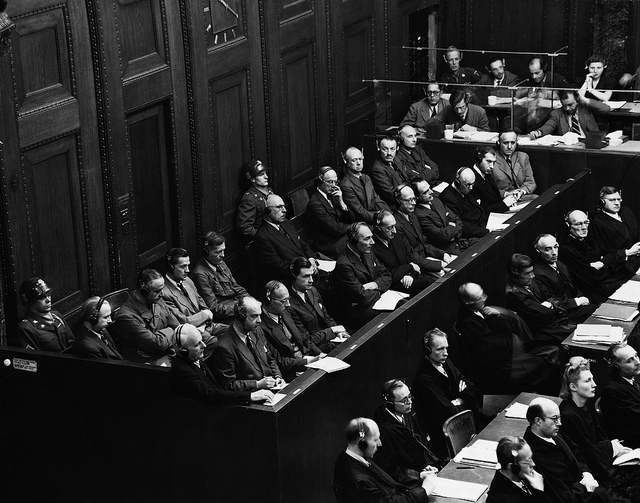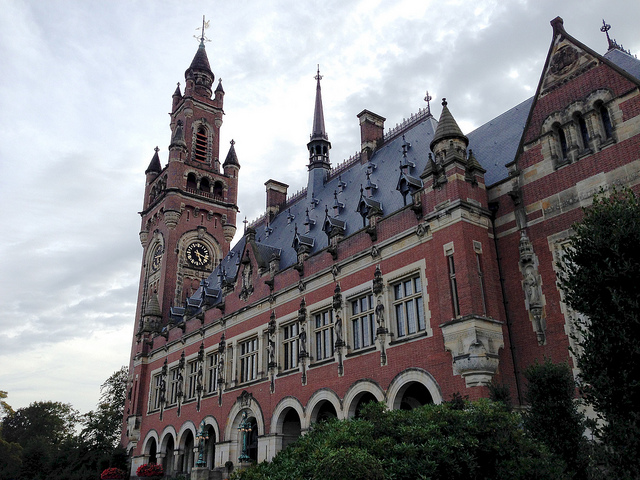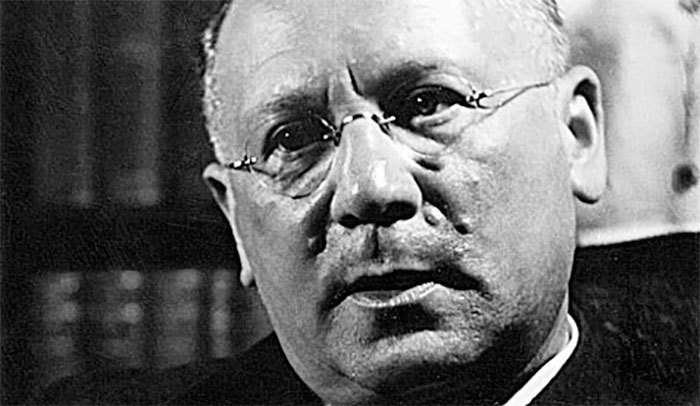You may not have heard of Hersch Lauterpacht before, but if – like us – you value the idea of universal human rights, then his legacy is really worth learning about. Fiercely committed to the rule of law and holding the powerful to account, Lauterpacht was instrumental in bringing Nazi war criminals to justice, and his work forged the foundations of our modern human rights laws.
Hersch Lauterpacht was born on 16 August 1897 in what was then the Austro-Hungarian Empire. His home town fell under German and Soviet occupation and is now Lviv, in Ukraine. His family was Jewish, although he was not very religious. Lauterpacht studied law and political science before becoming a scholar and judge. His work was so influential that his achievements are said to be “unsurpassed by any international lawyer of [the 20th] century”. So, how did Lauterpacht contribute to human rights?
Lauterpacht the writer

Image Credit: Barta IV / Flicker
In 1945, Lauterpacht published An International Bill of the Rights of Man. In this book, he argued for a treaty protecting fundamental human rights. He explained how the international community could implement and enforce his proposed Bill of Rights. One of the writers of the Human Rights Convention stated that the draft Convention ‘quite shamelessly borrowed’ from Lauterpacht’s book.
Lauterpacht’s writing focussed on how law might be used to protect individuals. In The Function of Law in the International Community, he wrote: “The well-being of an individual is the ultimate object of all law”. His works contributed to the idea that individuals could be protected by legally recognised rights.
The Nazi War Crimes Trials

Image Credit: Tullio Saba / Flickr
In 1945, Lauterpacht began to assist the Chief Prosecutor at the Nuremberg trials in the effort to bring Nazi war criminals to justice. Lauterpacht played a vital role in defining the crimes with which the perpetrators of the Holocaust would be charged. Lauterpacht’s key contribution was developing the legal concept of ‘crimes against humanity’.
In May 1946, British prosecutor Sir Hartley Shawcross asked for Lauterpacht’s help with the closing arguments at the Nuremberg trials. In his closing speech, Shawcross drew significantly on Lauterpacht’s draft. In a passage which was included in the Nuremberg judgment, Lauterpacht wrote of the importance of holding to account the individuals responsible for Nazi atrocities:
The rules of warfare, like any other rules of international law, are binding not only upon impersonal entities, but upon human beings. The rules of law are binding not upon an abstract notion of Germany, but upon members of the German government… upon German officers, upon German soldiers.
Lauterpacht was able to achieve all this despite the tragedy of the Second World War, in which he lost all but one of his family members from his home town.
Influence on the Human Rights Convention

Image Credit: Thomas Willmott / Flickr
The Human Rights Convention is the major international treaty protecting fundamental rights in the UK. (It takes effect in UK law through the Human Rights Act.) Lauterpacht’s work, championing an international system of safeguards for human rights, was influential in drafting the Human Rights Convention.
Before the Human Rights Convention was adopted in 1950, the international community had come together (in 1948) to adopt the Universal Declaration of Human Rights (UDHR). However, Lauterpacht considered that the UDHR suffered from a serious flaw: its lack of enforceability. This was a fundamental weakness which caused Lauterpacht to “denounce the Universal Declaration as a shameful defeat of the ideals it grandly proclaimed”.
Lauterpacht wanted to ensure that the Human Rights Convention provided an effective and enforceable system of human rights protection. He was indirectly involved in drafting the Convention. Key to his contribution was the belief that human rights could only be protected if powerful institutions were created to monitor and enforce them. Lauterpacht advocated a quasi-judicial body, similar to what became the European Commission on Human Rights.
Lauterpacht the Judge

Image Credit: Roman Boed / Flickr
Between 1955 and 1960, Lauterpacht was the British judge on the International Court of Justice (the judicial arm of the United Nations). This involved resolving disputes between states and giving advisory opinions on international law.
As an immigrant, Lauterpacht’s nomination for the role was controversial. The Attorney General said: “It is … surely desirable that our representative … should both be and be seen to be thoroughly British, whereas Lauterpacht cannot help the fact that he does not qualify in this way either by birth, by name or by education.” Lauterpacht’s time at the court was characterised by his determination to give judgments that carry conviction and clarify the law.
Hersch Lauterpacht fought for our rights. Throughout his career – as a scholar, legal practitioner and judge – he strived to set up the international system of fundamental rights protection from which we benefit today. Now it’s our turn to fight for Lauterpacht’s legacy, for our rights and for the rights of future generations.
Want to know more?
- Read more about the life of Hersch Lauterpacht. A detailed narrative of Lauterpacht’s contribution to international law features in Professor Philippe Sands QC’s award-winning book East West Street: On the Origins of Genocide and Crimes against Humanity.
- Learn about the history of the Human Rights Convention.
- Take a look at the work of other human rights heroes.







